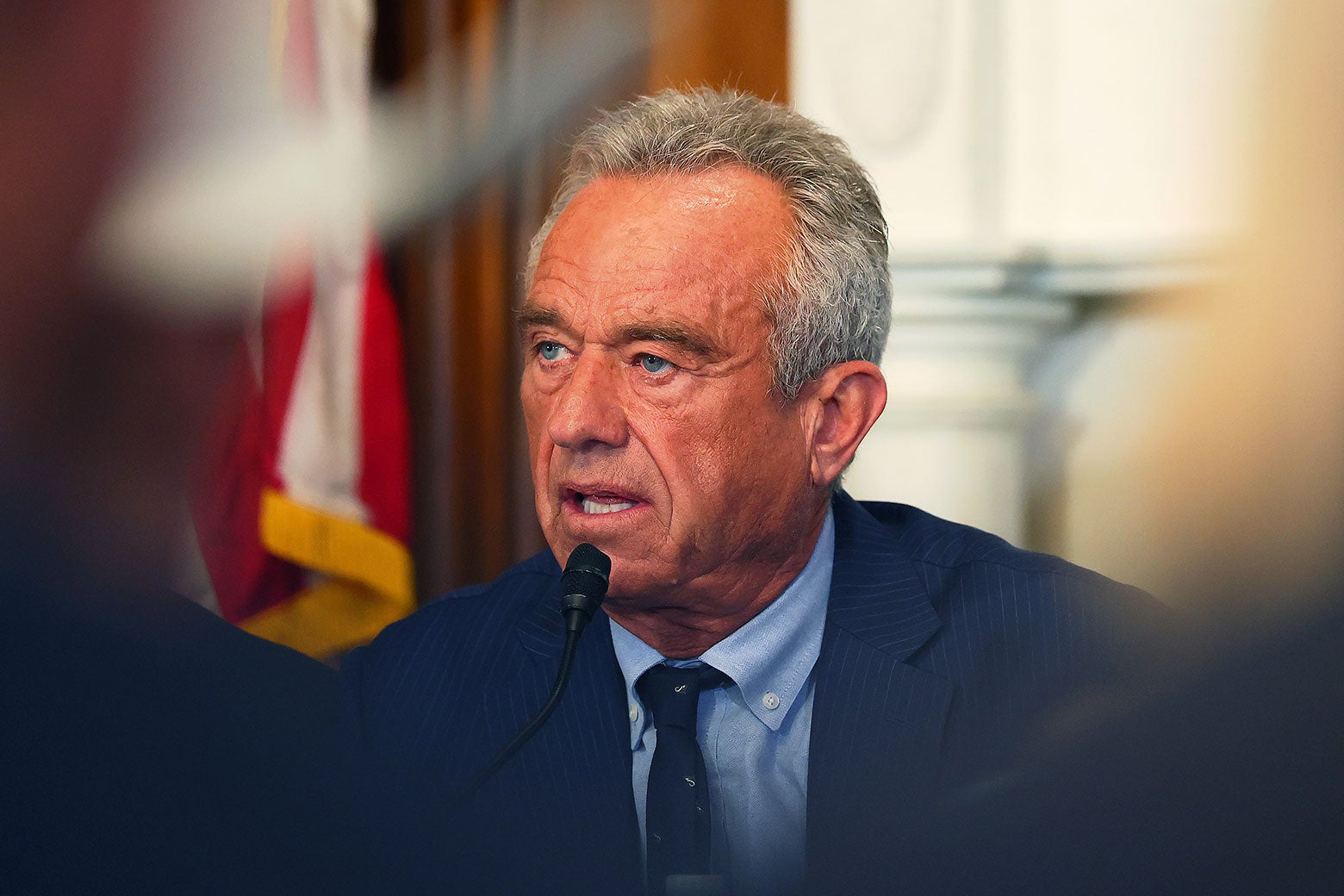RFK Jr.'s Crusade: A Threat to Our Lifespan?

RFK Jr.'s Crusade: A Threat to Our Lifespan?
I just read this eye-opening article from Slate titled "RFK Jr. Is Waging War on American Lifespans", and I can't help but feel a mix of concern and frustration at the implications of what RFK Jr. is advocating regarding mRNA technology and vaccines. In a time when we're witnessing incredible advancements in medicine—advancements that have the potential to extend lives and improve health outcomes—it's disheartening to see someone who seems poised to capitalize on public fear rather than promote understanding and progress.
The article points out how RFK Jr., often viewed as an erratic anti-vaccine figure, is actively undermining trust in scientifically-backed medical breakthroughs. He is framing the discussion around mRNA technology as a dangerous gamble, ignoring the countless studies that highlight its benefits. This isn’t just about vaccines; it’s a broader attack on the very innovations that could help us combat diseases that have plagued humanity for generations.
What strikes me as particularly troubling is not just his stance but the environment we are in where misinformation spreads like wildfire. It feels like we are at a crossroads where public perception can easily skew based on fearmongering rather than factual evidence. The article notes that many people still perceive vaccines as dangerous due to the influence of figures like RFK Jr., which is alarming when we consider that strong public health measures have led to the eradication of diseases that once claimed millions of lives.
The implications of this are massive. If influential figures continue to sow distrust in healthcare advancements, we risk rolling back years of progress in disease prevention and management. Just look at how vaccine hesitancy contributed to the resurgence of diseases like measles in recent years. We cannot afford to let skepticism drown out science, especially at a time when we are on the brink of revolutionary medical breakthroughs that could save lives and enhance quality of life significantly.
Moreover, this situation raises important questions about the responsibility of public figures. Should they not be more accountable for the information they disseminate? When does political ideology cross the line into recklessness, potentially harming public health? These questions are crucial as we navigate through a landscape where misinformation can be just as harmful as the diseases we’re trying to control.
On a larger scale, this situation reflects a growing trend of skepticism towards expertise in various fields—be it medicine, climate science, or technology. It seems we're increasingly caught in an echo chamber where sensationalism trumps reason, and it begs the question: how do we, as a society, reclaim trust in science and expertise?
As we discuss this, I’d love to hear your thoughts. Do you think figures like RFK Jr. are becoming more influential in shaping public opinion on health? How can we better combat the spread of misinformation? What role do you think social media plays in this dynamic?


No comments: